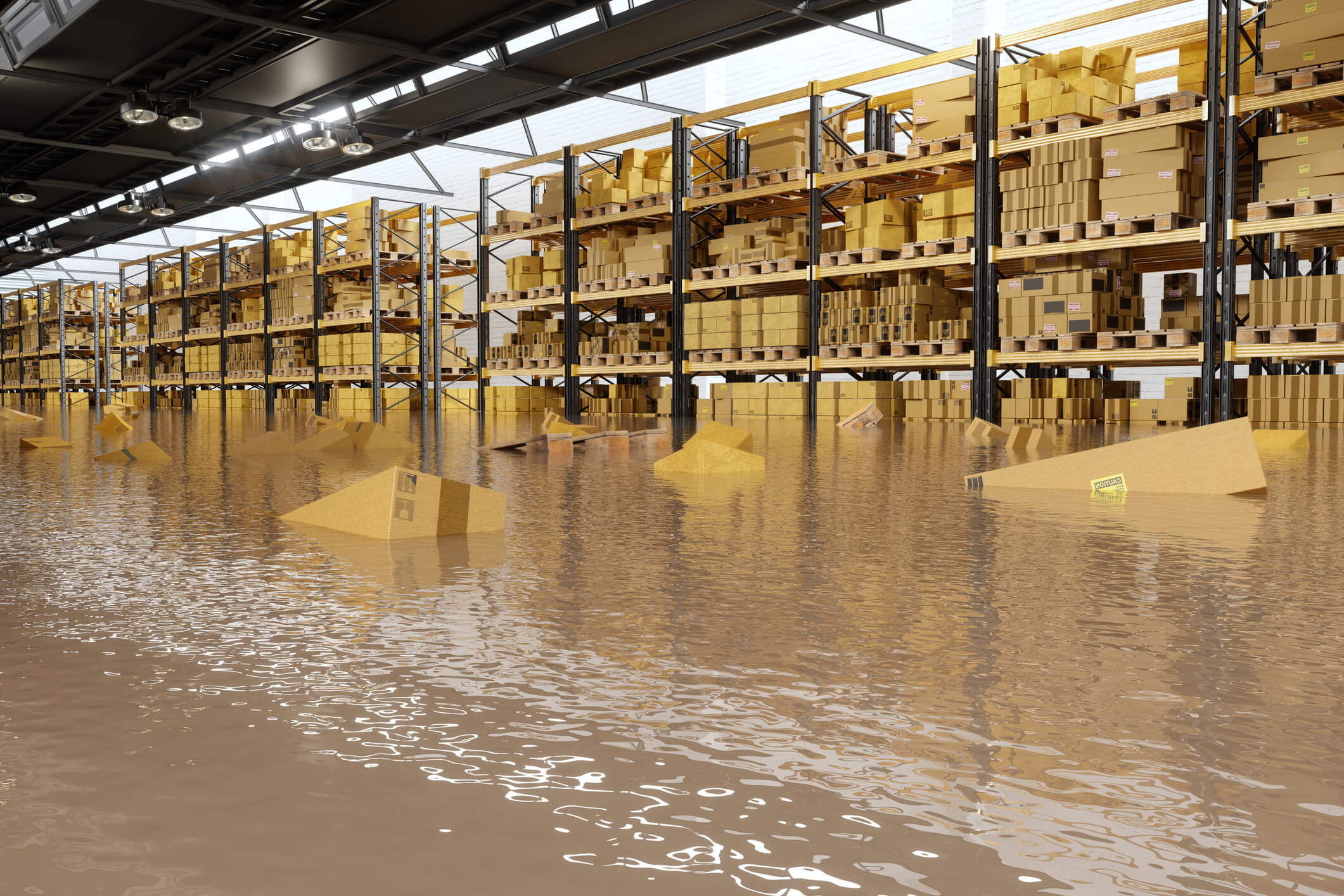What is an 'Act of God' in insurance, and how can you protect your business?
One critical thing that can get overlooked when sorting business insurance is natural disasters or events that are out of your control. These events can wreak havoc on your business, especially when you don’t have the proper insurance in place.
But what exactly counts as an ‘Act of God’, and what could it mean for your business? Find out everything there is to know with this Bionic guide.

What is an Act of God?
An ‘Act of God’ in insurance refers to any event that’s outside human control and can’t be prevented or predicted by reasonable means. Essentially, it describes an event where:
- No blame can be assigned to a person
- It couldn’t have realistically been prevented
- It was brought about as a direct result of natural causes
One of the key aspects of an Act of God is that it must be a direct cause of the damage or loss and not due to any human intervention.
For example, let’s say an earthquake strikes, causing extensive damage to homes and businesses, including one particular company that collapses. If the business owner has an insurance policy that covers natural disasters ( Acts of God) the damage to the business premises would be covered because an earthquake is classed as a natural event and directly causes the damage.
In comparison, if the earthquake shakes loose a poorly maintained tree on the property, which then falls and damages the business, the insurance provider might argue that the damage was due to lack of maintenance. This would then be classed as a human factor rather than the earthquake alone causing the damage. The insurer could potentially deny the claim if the policy excludes damage resulting from lack of care.
What’s classed as an Act of God?
Some common examples of an Act of God include:
- Earthquakes — These are sudden and violent shaking of the ground, often causing significant damage to buildings and other structures.
- Floods — These occur when water overflows onto land that’s usually dry, often due to excessive rain or overflow of rivers.
- Hurricanes and typhoons — These are powerful storms with strong winds and heavy rain, capable of causing widespread destruction.
- Tornadoes — Known for their spinning funnel-shaped clouds, tornadoes can destroy buildings, lift vehicles, and large animals with intense winds. Look out, cows!
- Volcanic eruptions — While there are no active volcanoes in the UK, it’s still worth mentioning that this is also known as an Act of God. The sudden eruption of a volcano causes lava flows and ash clouds and can disrupt nearby areas.
Remember to double-check your insurance policy, as insurers may define and cover these types of events differently.
What isn’t an Act of God?
There are many situations that don’t fall under an ‘Act of God’, and they are typically more related to human input.
- Human error or negligence — This could be anything from incorrect equipment installation to failure to maintain your business premises, which leads to damage. For instance, if a roof collapses due to poor maintenance rather than a natural event, this wouldn’t be considered an Act of God.
- War or acts of terrorism — These are deliberate actions caused by humans and are excluded from being classified as an Act of God. Some insurance policies will have a separate section on war and acts of terrorism cover for businesses, but some may exclude them altogether.
- Mechanical breakdowns — If a machine or vehicle fails due to ageing or lack of maintenance, this wouldn’t be considered an Act of God.
- Ordinary weather conditions — Mild natural events that are common to the UK, like light rain or non-damaging winds, generally aren't considered an Act of God. Instead, they’re part of the normal climate pattern that shouldn’t cause damage if proper precautions are taken.
Are Acts of God covered in business insurance?
Natural disasters that are considered ‘Acts of God’ like earthquakes, flooding, and storms are likely to be covered if you have the right coverage in place. But ‘Acts of God’ is not something you’ll likely find written into your insurance policy wording, but the events related to them might be included.
What are some facts that influence the likelihood of being affected by an Act of God?
The likelihood of being affected by an Act of God can hinge on a few factors. Here are some of the most common you can face:
- Location — This is usually the most direct factor in whether you’ll be affected or not. Where your business is located can increase your risk of exposure to natural disasters; for example, coastal areas might be more likely to flood.
- Climate and weather patterns — Being aware of local weather climate and patterns is vital. Areas prone to heavy rainfall can experience flooding, and regions with long dry spells could be at risk of wildfires. It’s also important to consider seasonal weather patterns — if you know it’s likely to flood during Spring, for example, then you can be more prepared.
- Industry and business operations — The type of industry that your business operates in can also affect how vulnerable you are. For example, a data centre in an area prone to electrical storms needs extra protection. Or a business focusing on agricultural operations may suffer from drought conditions or bog from rainfall.
- Distance to natural resources — How close a business is to rivers, forests, mountains, and other natural resources can be a big benefit, but it can also cause risks. For example, a small sweet shop next to a river might be at a higher risk of flooding but also benefit from better water supply.
How can you prepare for Acts of God?
To prepare for Acts of God, you should apply common sense to plan for unknown risks and communicate with your team.
Conduct a risk assessment
Start by figuring out what could go wrong and what natural disasters are most likely to happen in your area, and assess how vulnerable your business might be.
This could involve considering the type of disasters — from floods to forest fires — and thinking about how they could affect your operations, supply chain and the safety of your employees.
Remember, you’ll want to think about everything from how your business can operate during a power outage to issues with supply chain breakdown because of extreme weather.
Develop an emergency response plan
This plan should be detailed and outline any specific actions for any type of emergency.
Make sure that it details the immediate steps all staff members have to take, who to contact and how to communicate effectively in a crisis and under stress. A key part of this plan is ensuring the safety of your employees, clients, and customers, as well as any important data or stock.
Protect your business assets
Take the steps to physically protect your premises against the types of disasters your business is most likely to encounter. This could involve installing flood barriers or sandbags or securing all roof tiles to protect against strong winds.
Find out more about securing your business against storms, floods and bad weather.
Make sure your employees are properly trained
Regular training and emergency drills for staff are vital. Every member of your team should know how to react swiftly in any type of scenario. Make sure that everyone knows where emergency supplies are kept and how and when they should be used.
Keeping your training material up to date is essential as they’ll want to reflect the most current information and practices.
Stay informed
Keep an eye on local weather forecasts and emergency alerts, as they can give you the upper hand in preparing for any future threats. Use a proper protocol for monitoring these alerts and decide when to activate your emergency plan — you don’t want to pull the trigger too early, but you also don’t want to leave it too late.
It’s also wise to keep a list of contacts for local emergency services and other people you’ll need to contact.
Collaborate with your community
Building connections with other local business networks, emergency councils, and trade associations can provide valuable resources, information and insights. If possible, participate in community drills and meetings to broaden your understanding of local emergency planning and procedures and their response activities.
Get your business set with Bionic
Understanding Acts of God in business insurance is essential for any business owner looking to protect their operations from natural disasters and events out of their control. Without the proper cover in place, it could be the difference between your business sinking or swimming — literally!
Find out more about everything there is to know about business insurance — from underinsurance to preventing your tools from being stolen — with our guides. Or, get your business set with all your insurance needs.








